After losing wife to delivery complications, Georgia man urges lawmakers to do more to protect mothers
Georgia woman's family shocked by her death after scheduled C-section
The U.S. has the highest rate of maternal deaths of any industrial country. The woman's wife says that fact can't be ignored any longer.
ATLANTA - Charles Johnson, IV says his wife Kira Dixon Johnson was thrilled about becoming a mother for the second time.
"We'd even talked about how cool it would be to have boys that were close in age, so the fact they were 18 months apart, and grow up being best friends, this was everything we had really dreamed about," Johnson says. "She was just super, duper, duper excited."
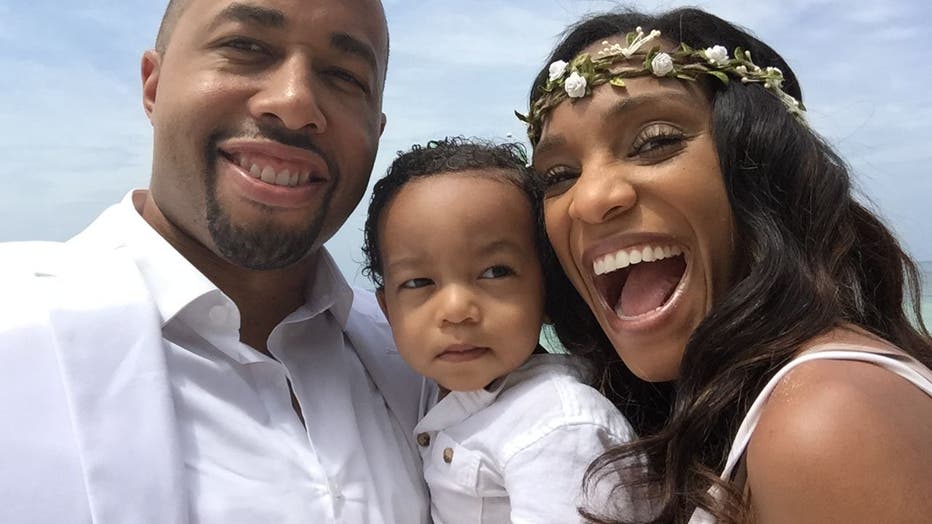
Kira Johnson was 39 and healthy, when she went in for a schedule caesarian section. Eleven hours later, Johnson died of a hemorrhage. Her husband Charles Johnson says they had waited more than 10 hours after the discovered blood in her catheter for a
Kira was 39, so healthy, Johnson says, she ran marathons and raced cars for fun.
Then came April 12, 2016, and a harrowing story Johnson has retold hundreds of times.
"Myself and my wife Kira walked into Cedars-Sinai Hospital in Los Angeles, for what we expected to be the happiest day of our lives, and walked into a nightmare," Johnson says.
After a scheduled c-section, Kira was moved to a recovery area, where, Johnson says, he noticed a problem.
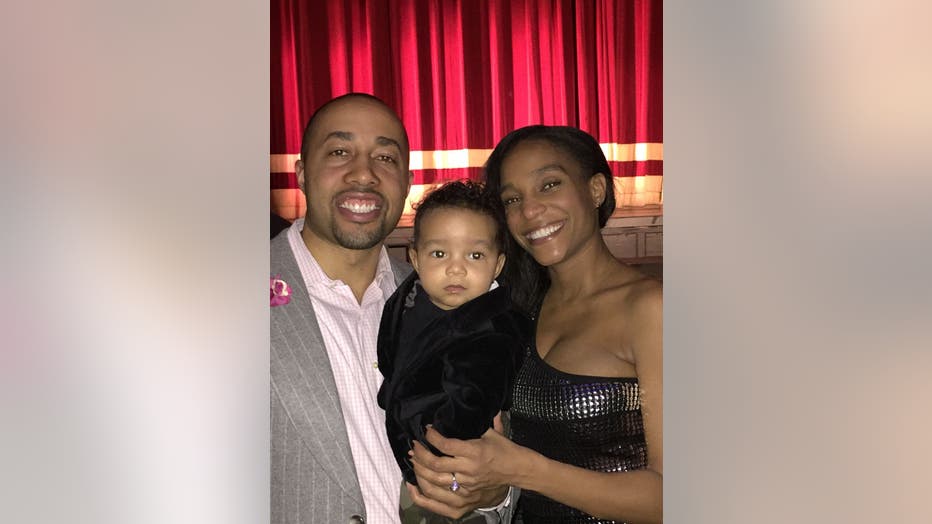
Kira Johnson was 39 and healthy, when she went in for a schedule caesarian section. Eleven hours later, Johnson died of a hemorrhage. Her husband Charles Johnson says they had waited more than 10 hours after the discovered blood in her catheter for a
"I actually saw blood in her catheter," he says. "So, that was the first sign of distress. So, I brought it to the attention of the doctors. So, they ordered tests and a CT scan that was supposed to be ordered STAT."
But, he says, his wife, who seemed to be growing weaker by the hour, never got that CT scan.
"Kira was allowed to bleed internally for more than 10 hours," Johnson says. "You've got to keep in mind, this was hour after hour of delay, denial, this runaround of, 'Well, we might take her back to surgery. We're waiting for this.' And, never getting a straight answer about why my wife is not getting just the minimum, just basic care. But, right up to the time that she was going into surgery, I really honestly thought they were going to fix it, and she would be right back."
When surgeons opened her up, Johnson says, they found 3 liters of blood in her abdomen.
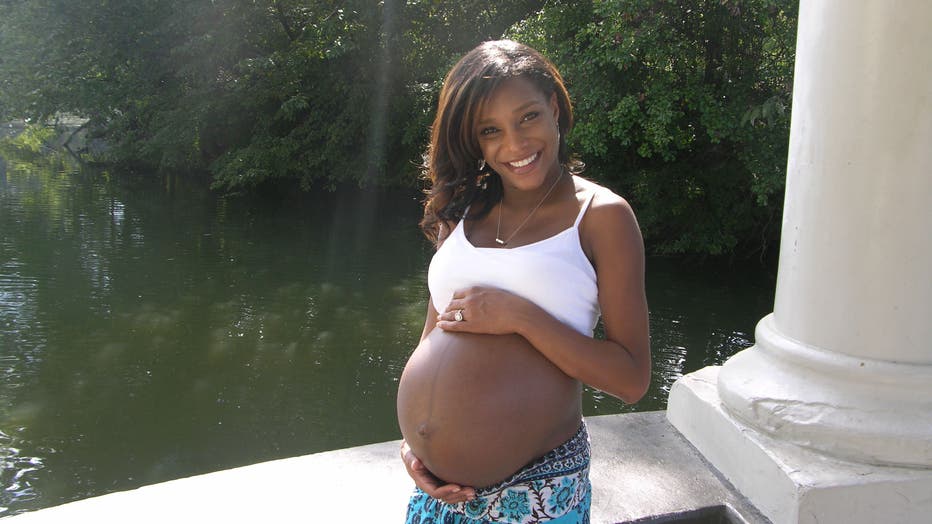
Kira Johnson was 39 and healthy, when she went in for a schedule caesarian section. Eleven hours later, Johnson died of a hemorrhage. Her husband Charles Johnson says they had waited more than 10 hours after the discovered blood in her catheter for a
She coded on the operating table, he says.
Kira Johnson died 11 hours after Langston was delivered.
"When we walked into the hospital that day, the thought that Kira wouldn't walk out to raise her boys never crossed my mind," he says. "But, as the weeks went by, I began to hear stories of other women who had horrible birthing experiences and other women who were dying in childbirth."
The stories, Johnson says, echo what happened to Kira.
"It's a woman who went into the hospital for what was supposed to be the happiest day of their life," he says. "Her or her family expressed concerns. Her concerns were denied. She wasn't prioritized, and by the time they did something, it was too late."
Each year, 700 women in the US like Kira Johnson die during pregnancy, childbirth or in the first few months after giving birth.

Kira Johnson was 39 and healthy, when she went in for a schedule caesarian section. Eleven hours later, Johnson died of a hemorrhage. Her husband Charles Johnson says they had waited more than 10 hours after the discovered blood in her catheter for a
The US maternal mortality rate is the highest of all the industrialized countries.
"Even more troubling and disturbing is the fact that African American women are dying 4 to 5 times as often as their Caucasian counterparts," Charles Johnson says.
March of Dimes CEO Stacey Stewart says the maternal mortality rate has been rising for years.
"It's actually increased 18% in the last year, because COVID-19 has made things even worse," Stewart says. "As if things weren't bad enough, things continue to get worse for pregnant moms and new moms. The disparities that we see, the inequities that we see, are rooted in a lack of basic care and attention, especially to women of color."
Stewart and Charles Johnson spent Wednesday at the Georgia State Capital, urging lawmakers to do more to protect women and their babies, an initiative known as March for Change.
"In Georgia we're going to be asking lawmakers to take action on a few things, things like newborns screenings," Stewart says.
"We need more caregivers who can help mothers have healthy pregnancies, especially around midwives and doulas, to work with hospitals and OBGYNs and others to reduce the rate of maternal mortality."
Johnson and March of Dimes are also pushing for Georgia to extend Medicaid coverage for new mothers.
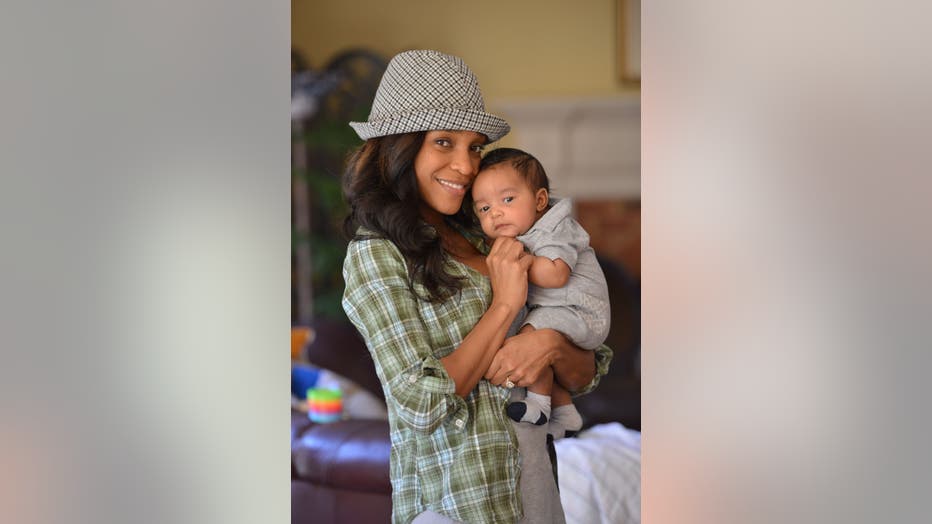
Kira Johnson was 39 and healthy, when she went in for a schedule caesarian section. Eleven hours later, Johnson died of a hemorrhage. Her husband Charles Johnson says they had waited more than 10 hours after the discovered blood in her catheter for a
"In Georgia, Medicaid has been extended to 6 months postpartum, but we need Medicaid extended at least one year," Stewart says. "Because one third of deaths happen for new moms after the baby comes up to one year, out to the baby's first birthday."
Charles Johnson and his boys Chris V and Langston have moved back to Vinings, Georgia, closer to family.
In April, Langston, who never got to know his mother, will turn 6.
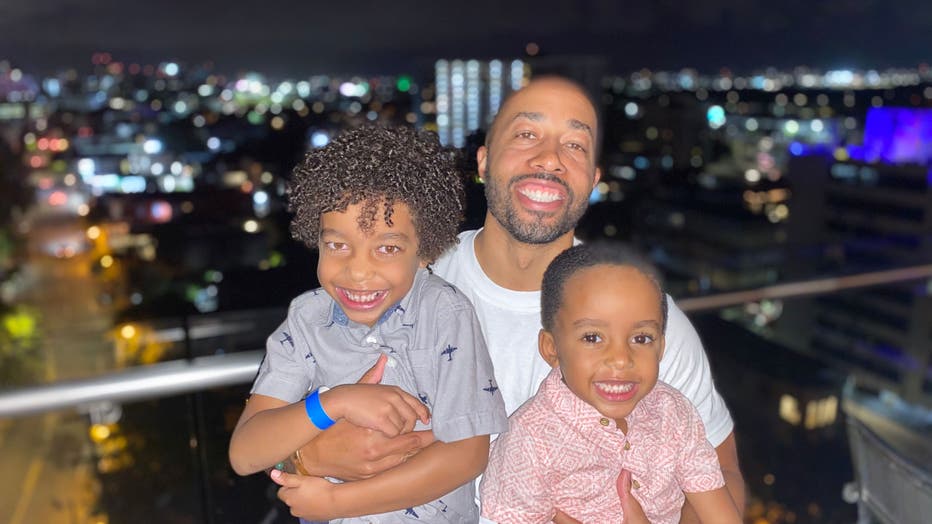
Charles Johnson is raising his two sons Charles V and Langston alone after the death of his wife Kira.
"One of the most difficult moments I think I've ever had on this journey was my youngest son Langston asking me, 'Where's Mommy?'" Johnson says. "I said, 'Mommy's in heaven," and, he is saying, 'I want to go, too, can I go to heaven?' So there is nothing we can do to bring Kira back. There's nothing I can do to fill that void in their life, in our life. But what I can do, and what I am committed to doing as long as there is breath in my body, is to do everything I can is to make sure we send other mothers home with their precious babies."
WATCH: FOX 5 NEWS LIVE COVERAGE
_____

